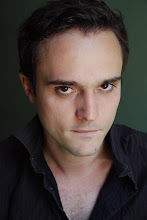Original Airdate: October 23, 1959

Plot: A movie actress, twenty-five years past her prime, can't let go of the past and spends each day rewatching her old films. Her agent attempts to get her work, but she's too vain to accept anything except a leading role. Finally she wishes so hard to be back on the silver screen that she is transported into a new film - one where she and her costars remain ageless forever.
I was surprised to see a female lead in a show made in the 50's. I became less surprised as I found out that she wasn't a strong character, but a half-crazed shrew. The episode is reminiscent of Sunset Boulevard and probably inspired by it. In an odd coincidence, just today I typed up a story that had similar elements: a former star dealing with being out of the limelight. I'm fairly certain I've never seen this episode.
For an episode that expounds on the dangers of dwelling on the past and not living in the moment, the conclusion is a complete 180: you can live in the past, and you can be young forever. Perhaps it's not the moral I thought we were going to get, but it did send us off with a beautiful musical score and a smile.

An effect I enjoyed (and who knows if this was intentional) was the contrast between the darkness of the viewing room and well-lit other locations. Time almost stops in a movie theatre; as you're transported to a different time and place it's like you cease to exist. And no one can see the finer indications of age in the dark: sagging skin, wrinkles. But in the light, time marches on. It's no surprise, then, that our leading lady rarely leaves her projection room.












